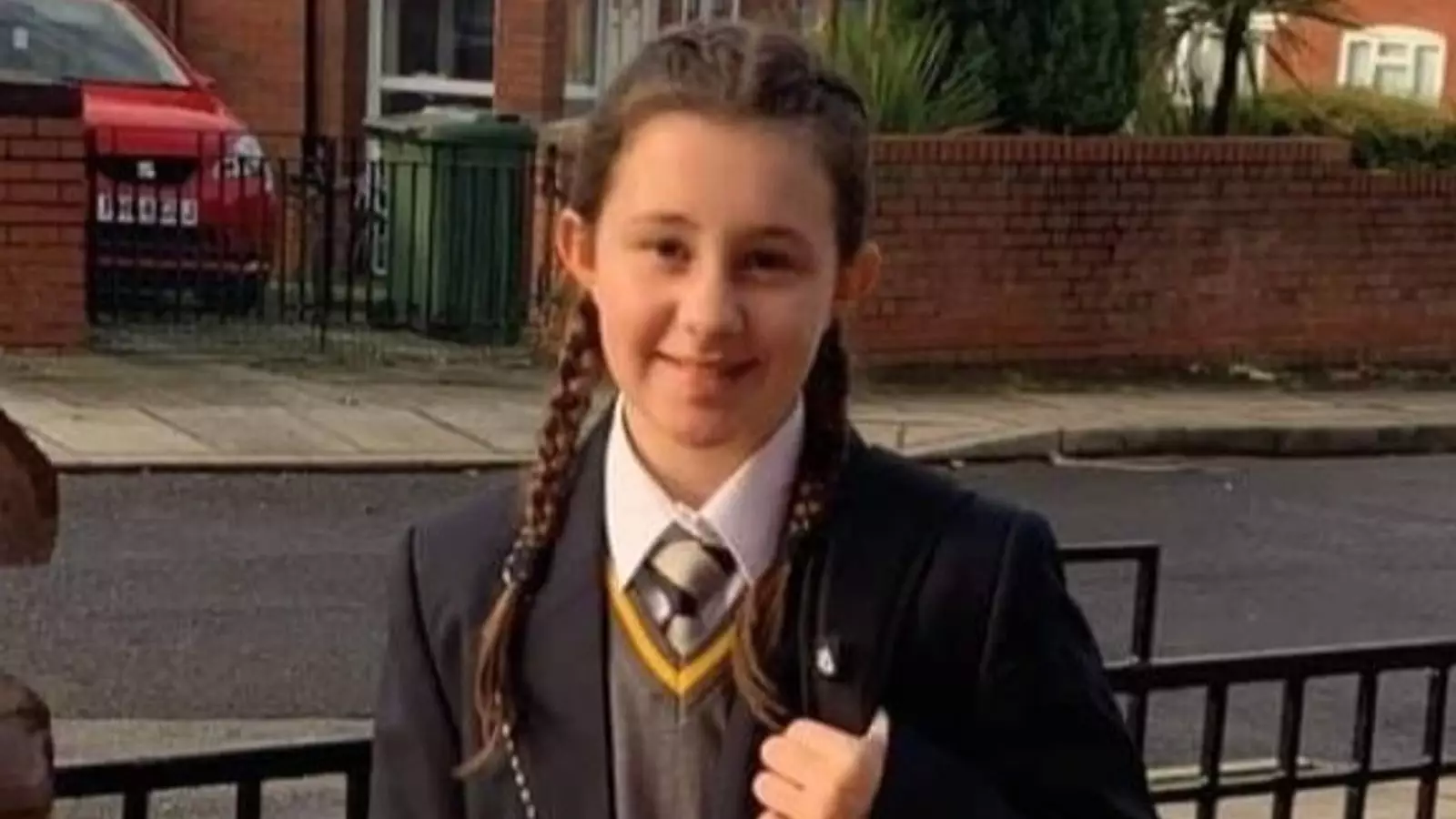On a seemingly typical evening in November 2021, a community was shattered in Liverpool when 12-year-old Ava White lost her life to a senseless act of violence. The horrifying details of her murder, carried out by a 14-year-old named Harry Gilbertson, reveal not just the tragedy of lost youth but the pressing issue of knife crime that plagues society today. Many parents expect their children to explore life with freedom and joy, especially when participating in events like the Christmas lights turn-on. Instead, Ava’s family was forced to face the grim reality of loss, forever altered by a moment’s decision from a misguided teen.
An Overdue Name and Accountability
Now that Gilbertson has turned 18, the public has finally been given the opportunity to know his name. The reporting restrictions that kept his identity concealed until recently were, perhaps, a misguided attempt to guard the potential implications on his family, including younger siblings. It is difficult to comprehend the rationale behind protecting a young man who inflicted so much pain. Ava’s mother, Leeann White, expressed her desperate need for accountability, stating that Liverpool deserved to know the face behind the crime that robbed them of a vibrant young girl. The society’s inclination to shield offenders often seems to overshadow the victim’s loved ones, leading to an unsettling sense of injustice.
The Paradox of Privilege
Ava’s family has been vocal about the trials they face while the murderer inadvertently navigates his own path toward a semblance of normalcy. Gilbertson was reported to be taking his GCSEs, an academic milestone that Ava would never reach due to his brutal actions. That stark juxtaposition of their lives raises deep ethical concerns: why should a killer enjoy privileges while the victim’s family bears the heavy burden of grief? As Leeann remarked, “It should have been Ava sitting her GCSEs, not him.” The apparent lack of stringent consequences for Gilbertson’s behavior post-conviction only deepens the frustrations, especially when he is seen casually enjoying life through social media.
Confronting the System’s Failures
Compounding the tragedy is the stark contrast in how Gilbertson’s case was handled compared to the emotional turmoil inflicted upon Ava’s family. While Gilbertson was provided with the benefits of youth privileges, Ava’s loved ones were left to confront a raw reality that kept them in an extended state of mourning. Leeann White described a sense of alienation from the legal and social systems that seem to prioritize the well-being of the offender rather than the healing of victims’ families. The protective measures surrounding Gilbertson’s younger siblings, initiated by Judge Mrs. Justice Yip, exacerbate the feeling of disparity; it’s a deep-rooted societal flaw when empathy is reserved for the perpetrator while the victim is forgotten.
Turning Grief Into Action
Amid devastating losses, Leeann White has taken an extraordinary path. Rather than succumbing to despair, she started a foundation in Ava’s name, aimed at supplying bleed control kits to schools and public spaces—a proactive measure to save lives in an era of increasing knife crime. Remarkably, she has reported that these kits have already saved at least six lives. This shift from mourning to meaningful action resonates deeply within the community and serves as a beacon of hope in the darkest of times.
The Call for Societal Change
Ava’s unfortunate fate serves as more than a story of violence; it opens a dialogue about the systemic flaws that allow dangerous behavior to persist while victim narratives remain marginalized. Knife crime, a blight on many urban areas, continues to escalate, and real change must occur at multiple levels— from preventative education to rigorous law enforcement practices. Every statistic represents a life, a potential, extinguished by senseless violence.
It’s imperative that society acknowledges its failures, ensuring that victims like Ava are not mere footnotes in police reports but are celebrated as lives cut short by societal neglect. Instead of obscuring identities and protecting perpetrators, we must invest time and resources into fostering a culture of accountability, remembrance, and change. Ava White deserves to be remembered—not only as a victim but as a catalyst for hope, serving as a powerful reminder that the community must unite to combat this ongoing crisis of youth violence.


Leave a Reply